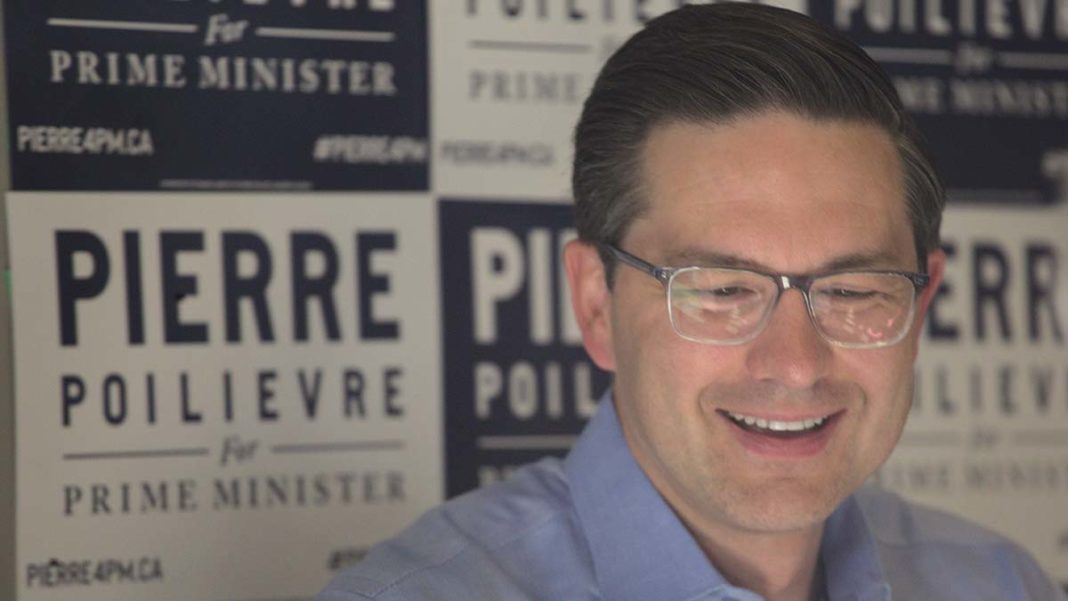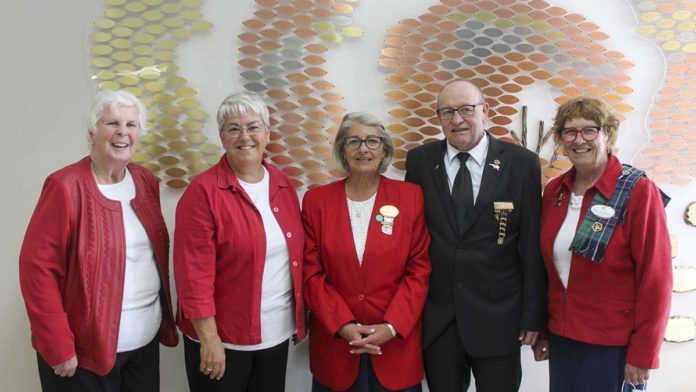OTTAWA—The Conservative Party of Canada has selected Carleton MP Pierre Poilievre as its new leader at the Ottawa Convention Centre on Saturday, September 10. The announcement of the Conservative’s new leader was a more subdued affair than previously planned due to the death of her Royal Majesty Queen Elizabeth II.
Mr. Poilievre captured the leadership in a record landslide, sweeping 330 of the possible 338 ridings, including Algoma-Manitoulin-Kapuskasing, and garnering 68.15 percent of the membership vote on the first ballot. His closest rival, former Quebec premier Jean Charest, captured barely 16.7 of the ballots up for grabs. In the points system used by the Conservatives to select their leader Mr. Poilievre captured 22,993 of the less than 33,800 points up for grabs. Among other candidates MP Leslyn Lewis came third with 9.69 percent of the vote and former Ontario MPP Roman Baber came fourth with 5.03 percent of the vote. MP Scott Aitchison came last with 1.06 percent.
Algoma-Manitoulin-Kapuskasing was part of the supporting trend for the new leader and a riding insider told The Expositor that the leadership campaign boosted paid-up Conservative Party of Canada membership in A-M-K from 130 to 300, a record number for the local association.
“Tonight begins the journey to replace an old government that costs you more and delivers you less, with a new government that puts you first, your paycheck, your retirement, your home, your country,” Mr. Poilievre said in his first speech as leader delivered Saturday evening at the Ottawa convention centre floor where the leadership announcement was held.
Despite a sometimes acrimonious strategy during the leadership campaign, Mr. Poilievre was quick to hold out an olive branch to supporters of his opponents. “To supporters of all of these fine candidates I open up my arms to you. Now, today, we are one party serving one country,” he said during his victory speech.
For his part, Mr. Charest thanked his supporters and said he was proud of the campaign they ran, going on to offer that Mr. Poilievre should be provided with a “clean slate” opportunity to unite the party. “We still have a critical role to play in shaping our forward-looking policy agenda and attracting new voters to the Conservative Party,” he said.
Mr. Poilievre has been among the most successful Conservative leaders in history so far, having attracted thousands of new members in record-breaking campaign. He has successfully channeled hope, a strategy utilized to good effect by Canadian Prime Minister Justin Trudeau during his time in office—but it is a hope tempered and forged in the anger and frustration felt by many in these troubled times.
“There are people in this country who are just hanging on by a thread,” he said. “They don’t need a government to run their lives, they need a government that can run a passport office. They need a prime minister who hears them and offers them hope that they can again afford to buy a home, a car, pay their bills, afford food, have a secure retirement and, God forbid, even achieve their dreams if they work hard. They need a prime minister who will restore that hope, and I will be that prime minister.”
Mr. Poilievre is a career politician, first elected in 2004 at age 25, he has been connected with the Conservatives from a young age, leading his university Conservative club. Age 43, he married his wife Anaida in 2017, having eloped in Portugal. They have two children, Valentina and Cruz.
Mr. Poilievre is described by most Parliament watchers as a “firebrand” and by his opponents as a “populist,” but neither anticipate the new leader will temper his approach now that he is leader to appeal to the more centrist Canadian body politic. That kind of strategy certainly proved a poison pill to his predecessor, but his high-profile support for the Freedom Convoy and opposition to vaccine mandates place him on the opposite side of the polls with most Canadians.
The next federal election is likely to take place in 2025, unless the NDP decide to pull the plug on their support, leaving plenty of time for the Liberals and NDP to try and define the new Conservative leader with a negative brush. History will be working in his favour nonetheless as the best before date on Canadian governments will have passed for the Liberals by 2025.





